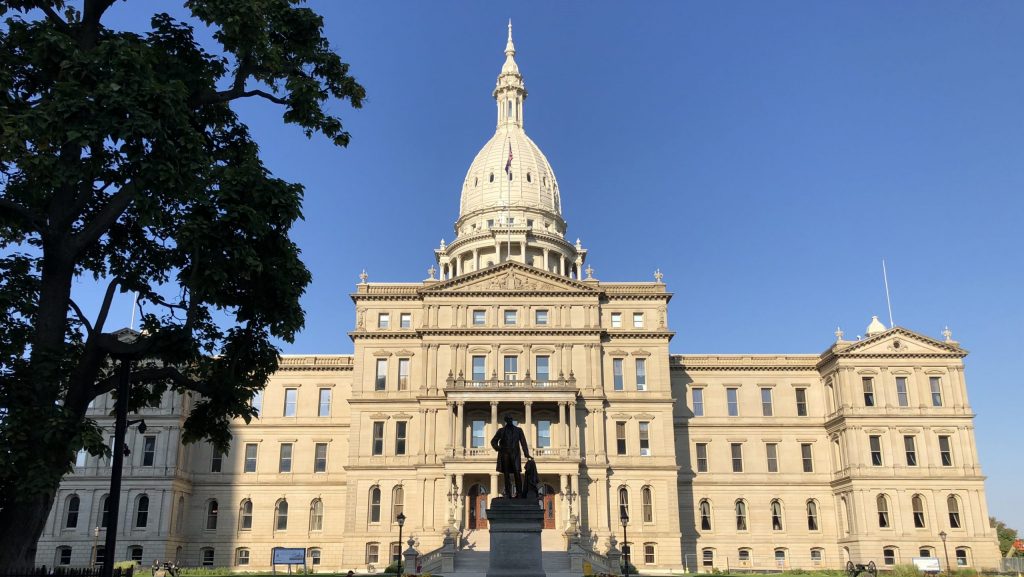Financial disclosure tool sparked by voter-approved amendment goes live
Colin Jackson March 18, 2024The filings, expected to become available later this spring, will include details like income sources, employers and investments.

Michigan State Capitol building.
The public will soon be able to look through financial disclosure information for Michigan elected officials and candidates for office. That’s after the Michigan Department of State launched a new website to view those reports last week.
The filings, expected to become available later this spring, will include details like income sources, employers and investments.
Quentin Turner is program director for the group Common Cause, which pushed for the passage of the ballot measure that led to the website’s creation. He said having the disclosure information available can help cut back on officeholders abusing their power.
“The best way for voters to be able to know what kind of incentives or what kind of biases their elected officials might have towards certain industries or certain pieces of legislation is for that information to be made public,” Turner said.
Incumbent officials have until April 15 to submit their filings, while candidates have until May 15.
Michigan Secretary of State Jocelyn Benson said it’s a first step to restoring residents’ trust in their government.
“We’re one of only two states that didn’t require their lawmakers and elected officials to disclose any other sources of income they may be receiving, while serving in office for example. And this rectifies that so that citizens can know and hold their elected officials to task, hold them accountable,” Benson said.
The portal addresses financial disclosure requirements approved by voters in a 2022 constitutional amendment.
“It can’t be understated how far behind the state has been when it comes to government transparency and ethics.”
— Quentin Turner, program director for Common Cause.
Benson said the state can’t stop there.
“All of that suggests that we’re certainly headed in the right direction by requiring elected officials to disclose these personal financial details for the first time but we have to see this, and lawmakers and the governor have to see this as a first step in that direction,” Benson said.
Last year, state lawmakers passed legislation to enact the Proposal 1 Amendment shortly before a required deadline.
Under the laws, the financial disclosure reports will also include some basic information about the spouses of officials and candidates, like their name, who they work for, and whether they’re a lobbyist.
But the laws faced criticism for not going far enough toward government transparency.
Turner, like Benson, said he appreciates the Proposal 1 changes as a move forward, though he sees Michigan as needing to play catch up when it comes to government accountability laws.
“It can’t be understated how far behind the state has been when it comes to government transparency and ethics,” Turner said. “You know, we really are, at least we have been, the bottom of the barrel compared to just about anywhere else in the country.”
Some of the ways to improve that, Turner said, would involve supporting some of the open government legislation currently under discussion in the state Legislature.
Meanwhile, legislation to tighten the state’s rules around gift-giving for lawmakers and their staff, as well as to prevent lawmakers from becoming lobbyists immediately after leaving office, was recently introduced in the House.
Support Detroit Public Radio.
WDET is celebrating 75 years of people powered radio during our 2024 Spring Fundraiser, now through March 24. Become a member and invest in WDET’s next chapter of news, music and conversation.
